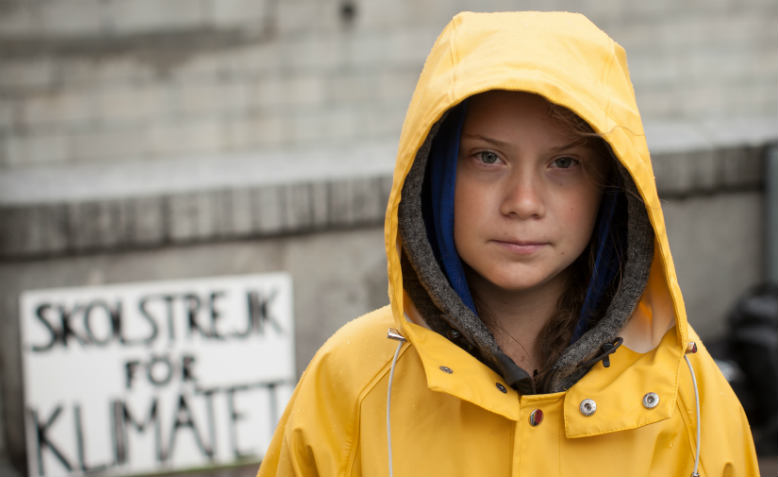 Greta Thunberg, school strike for climate. Photo: Wikimedia Commons
Greta Thunberg, school strike for climate. Photo: Wikimedia Commons
Business as usual makes a climate catastrophe inevitable. It is time to stop business as usual. Join the global climate strike on 20 September, writes Bill Perry
Greta Thunberg and the school strike movement have called for adults to join them on their next global strike day on 20 September, three days before a crucial UN climate summit in New York.
Climate crisis is no longer a debate about the future. It is here. The lives of millions are already being affected as unprecedented fires rage across the Arctic, the Amazon, Indonesia and central Africa. The Greenland ice melt this summer was at a rate previously not expected until 2070. The Intergovernmental Panel on Climate Change (IPCC) report of 2018 warned that we had 12 years to make ‘rapid, far-reaching and unprecedented changes in all aspects of society‘ to limit global warming to 1.5°C. Now scientists are saying that the IPCC report is too conservative and we may only have 18 months to start making the changes required.
The science is clear. But the ongoing failure of governments to act has led to increasing frustration and anger. School students and Extinction Rebellion have led mass direct action to up the ante. There’s no doubt this new movement has helped to shift the debate and politicians have been forced to declare a ‘climate emergency’ but it’s all too clear that our rulers also just want to carry on with business as usual. And it’s not just climate deniers like Trump and Bolsonaro. The UK government is pressing ahead with fracking and the third runway at Heathrow airport, while British banks continue to invest billions in fossil fuels.
Business as usual makes a climate catastrophe inevitable. It is time to stop business as usual. That is why the move towards global strikes is so significant. If the bosses and the politicians are not willing or able to make the necessary changes to our industries, transport, farming or food production – then ultimately it will be up to all of us who do those jobs to take direct action and make the changes ourselves. Strikes raise the possibility of workers getting organised together to do that.
In the face of this monumental task we need to take inspiration from the school strikers and from the thousands of extinction rebellion activists who were prepared to break the law in order to create maximum civil disruption and were arrested in their hundreds in April. Strikes could take the movement to the next level by creating mass economic disruption and involving even more people. So on 20 September why sit at work as usual while our planet is burning and the future of humanity hangs in the balance? Wherever we are able, we need to leave work and join the youth strikers on their demonstrations.
On 15 March this year power workers in Belgium joined the students on strike because they said they wouldn’t leave the kids to fight alone. They were right. In early September the Trade Union Congress (TUC) will debate a motion to support the climate strike. This could be a siren call to millions of trade unionists to raise the question of walkouts and protests in workplaces across the country.
Whether or not we are in a trade union, we can all raise the question of joining the strike marches with our colleagues, even for a short time. The government, and many local authorities, have declared a climate emergency, so public sector workers should feel confident in demanding that they support them in taking some kind of action. Many private employers also boast about their green credentials and use it as a selling point for their products and services. Well we should put it to them that being green means supporting us to leave work to march that day.
The threat we face is terrifying and can seem insurmountable but our movement of millions offers hope for a future in which people and the planet come before profit.

